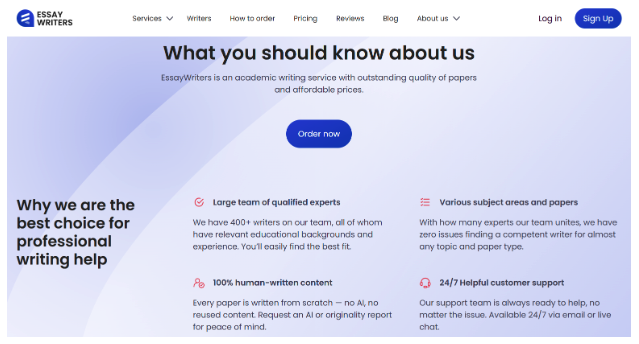Interviewer Ask What My Pronouns Are [Is This Legal?]
When someone brings up pronouns in any situation it can be touchy, personal, and even confusing. But lately, I’ve noticed a growing trend with interviewers asking candidates what their pronouns are. For some, this is a welcome question. For others, they are caught very off-guard and aren’t sure what to do.
Let’s break down the trend, how you should reply, and whether or not recruiters and employers should be asking this question at all.
What It Means When an Interviewer Asks About Pronouns
While pronouns in language have been around forever, asking about pronouns in the context of how someone identifies is a somewhat new trend. LinkedIn really brought it to the forefront when they released pronouns on their website.
Purpose Behind Asking About Pronouns
From what I can gather, most companies that choose to ask candidates about pronouns do so from a well-intentioned place. They are trying to foster an inclusive environment, especially for non-binary individuals or for those who are gender non-conforming.
I don’t think most recruiters are being malicious when they ask this question. That doesn’t mean they should ask it, but I’ll get to that in a few minutes.
For the most part, people asking this seem to be making an attempt to be respectful, realizing that not everyone identifies with a pronoun that matches the way they look.
How Likely Is It That I Will Be Asked About Pronouns
Right now, it’s pretty unlikely. When I speak to job seekers in coaching sessions and during my free 1:1 chats, the overwhelming majority will tell me that they’ve never been asked about their pronouns.
In a few instances, people have told me that they have been asked about their pronouns, but those cases are usually when the person is not cisgender.
It’s hard to predict the future of people asking about pronouns in an interview setting, but for the moment, it seems to not be the norm. That doesn’t mean you shouldn’t be prepared for it though - especially if you’re interviewing with a company that has strong diversity and inclusion initiatives.
How to Respond Professionally
If someone asks you about your pronouns, I do believe it is best to give them an answer; although, I understand it may be an uncomfortable question for many.
Simple, Direct Answer
Keep your answer simple, and direct.
I would avoid saying that “my preferred” pronouns are X. I would also avoid stating that “I identify” with X pronouns.
Instead, simply say:
My pronouns are X.
Bring It Up Yourself
If the question isn’t asked, it’s acceptable to bring it up yourself. You could say:
Hi, I’m Cole and my pronouns are he/him, and I”m excited to be considered for this position.
If it doesn’t come up, you don’t have to offer them. Technically, you don’t have to offer them even if it is asked of you (I’ll get to that in a minute). I understand that some people have legitimate fears of being discriminated against if they do bring up their pronouns - especially if they aren’t the same as what the other person “thinks” they should be based on your appearance.
On the other hand, it may also help you avoid work environments that won’t be inclusive of your identity. Ultimately, it’s your choice whether you choose to share.
Correct Them If They Use the Wrong Pronouns
If an interviewer doesn’t ask you about your pronouns and you don’t introduce yourself with them, they could get it wrong. If someone uses the wrong pronouns, respectfully correct them the same way you would if they mispronounced your name. This is professional to do.
Legal Considerations
Let’s get into whether or not an interviewer should be asking these questions.
Employer Rights and Responsibilities
I think the overwhelming majority of people see questions about pronouns as an attempt to be inclusive. However, I have serious concerns about the legality of asking this question.
Back in 2020, Bostcock v Clayton County held that firing an individual because of sexual orientation or transgender status violated Title VII. The EEOC has since updated their guidelines on pronouns as well. They are clear that the law forbids sexual orientation and gender identity discrimination when it comes to any aspect of employment, including hiring.
I’m not an employment attorney, but I would consult with one on this before asking about pronouns in an interview setting. Asking about pronouns seems like a personal question to me. And personal questions should be avoided unless you welcome a discrimination complaint.
If you’re asking someone to reveal how they identify and you don’t hire them, you could be opening yourself up to a discrimination claim.
On the other hand, if a candidate offers their pronouns without being asked, that is perfectly fine. And you should use the pronouns that they tell you, but I wouldn’t advise asking them in an interview.
Candidate Rights
If you are a candidate, you are under no circumstances obligated to provide your pronouns in an interview. While I do think in the majority of situations, it’s best to offer them if you are asked because most people asking the question seem to do so out of respect for inclusion; LGBTQ discrimination is very real and you should do what you are comfortable with.
One job seeker shared that they used to include pronouns on their resume. When they removed them, they noticed an increase in interviews and received a job offer shortly after. It’s anecdotal evidence of discrimination, but it’s a fair concern to have.
Employer Guidelines
Best Practices for Asking
I’ve heard all kinds of feedback from candidates this past year about pronouns. Some find it insulting when they are asked. Some welcome it. Some feel really uncomfortable.
In addition to the legal considerations that I discussed earlier, here are my thoughts.
Since the interview is likely to use I and you pronouns and unlikely to involve conversation involving the candidate as a third person, it may not make sense to even ask at this time. I do think it’s appropriate to ask after you’ve made the decision to hire someone, but that’s a different topic.
Second, if you’re unsure, you could use they/them which is gender neutral.
If you do ask, do not ask for their “preferred” pronouns as if it’s a choice or preference that you may or might not use.
If they choose not to share, respect their decision.
Creating Comfortable Dialogue
It is your job as the interviewer to create a comfortable environment for this conversation to take place. Here are some ways that you could make the candidate feel comfortable.
Instead of asking, introduce yourself sharing your pronouns first. If they are comfortable, they will share theirs with you afterward. If not, respect that.
Use your pronouns in your email signature so they see it when you communicate with them before the interview. If they see that you are using pronouns, they may be more comfortable sharing their own.
If you mess up and use the wrong pronouns, apologize the same way you would if you mispronounced someone’s name.
Template For Asking About Pronouns
The best way I’ve seen anyone ask about pronouns has been from the University of Arizona. Their recruiting team is advised to say the following:
Hi, My name is Cole and I use he/him pronouns. How would you like me to introduce you to the interviewers/hiring manager?
Best Practices Moving Forward
I would love to hear from you about your experiences with pronouns in an interview setting. What advice would you give companies and candidates as they navigate this new trend?
Interviewer Ask What My Pronouns Are Recommended Reading
Interview Body Language [Why You’re Doing It Wrong]
34 Smart HR Generalist Interview Questions
Ghosted After a Job Offer [8 Reasons and How to Avoid It]
Social Security Number on Job Application [What You Should Do]
Cole Sperry has been a recruiter and resume writer since 2015, working with tens of thousands of job seekers, and hundreds of employers. Today Cole runs a boutique advisory firm consulting with dozens of recruiting firms and is the Managing Editor at OptimCareers.com.
Get Smarter About Job Search
Members get exclusive job search analysis, a curated coaching feed, and on-demand coaching.










